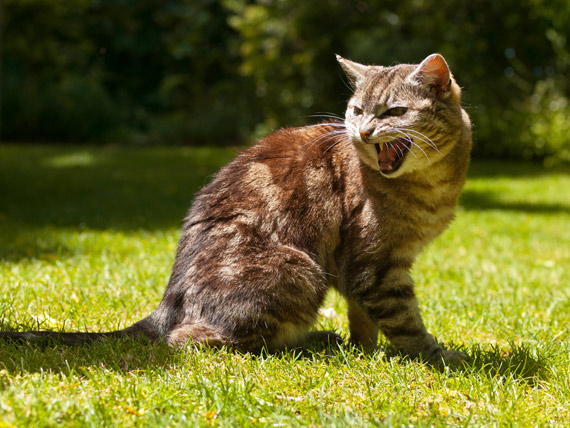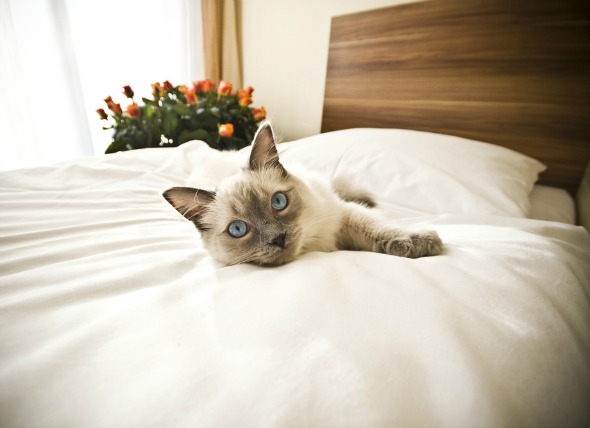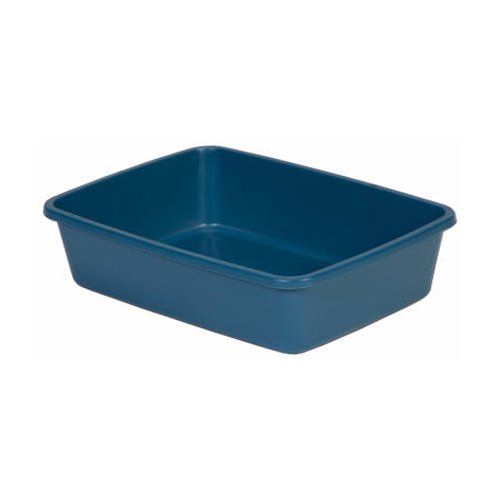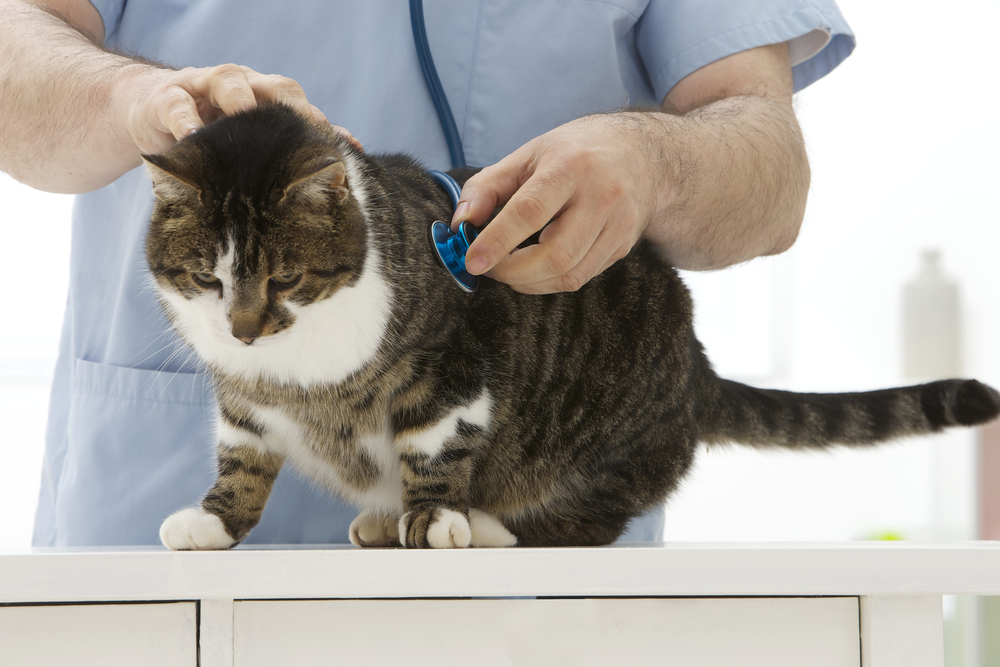Veterinarian Pet Care Tip - Foods Toxic To Your Dogs And Cats
Hi, I’m Dr. Al Paredes, and I’d like to welcome you to Day and Evening Pet Clinic article site and give you some interesting tips about about food that can make your dogs or cats sick.
Who can resist giving tidbits to a soulful pair of puppy or kitty eyes that plead for a bite of what you are eating, despite the fact that some human foods are toxic poison to your pet. The holidays are particularly touchy when your guests can hardly resist sneaking bits of food to your begging pets. While they mean well, it is best to ask that they not indulge your pets right up front so there is no question what your rules are.
What you and your house guests don’t know CAN kill your dog or cat. Here’s a list of what NOT to feed your pets.
Foods That Are Most Toxic To Dogs and Cats
Avocados
Avocados contain a very toxic component called Persin to most animals that can damage lung, heart, and other tissue in many animals.
Beer & Other Alcoholic Beverages
Alcoholic beverages can damage an animal's liver and brain, and the effects can be deadlier on animals than on humans since they are much smaller than we are.
Nuts
Two types of nuts are especially toxic: walnuts and macadamia nuts. The toxic effects can include vomiting to paralysis to death. Within 12 hours of eating the nuts, the pet starts to develop symptoms such as weakness , an elevated heart rate, an inability to stand or walk, vomiting, and hyperthermia (elevated body temperature.) These symptoms can be even more severe if your dog eats some chocolate with the nuts and can lead to kidney failure, and death.
Chocolate
Chocolate contains theobromine, and it can kill your pet if they eat it in large quantities. Dark and unsweetened baking chocolates are especially dangerous because these do not have the extra ingredients used in making milk chocolate which reduces the amount of theobromine in a serving. Giving your puppy a piece of chocolate candy, chocolate cake or chocolate icing could cause him to become ill. It can also cause a dog or cat's heart to beat very rapidly or irregularly especially if the animal is being especially active after eating chocolate.
Candy and Artificial Sweeteners
Candy, cookies, drinks, gum or anything containing Xylitol (a common sweetener found in some diet products) can cause a sudden drop in an animal's blood sugar, loss of coordination and seizures. If left untreated, the animal could die.
Caffeine
Coffee, tea, soft drinks, some candies and baked goods or any product that contains caffeine stimulates an animal's central nervous and cardiac systems. This can lead to heart palpitations, restlessness, and even death, depending on how much the animal consumes.
Grapes and Raisins
Grapes and raisins can cause kidney failure in dogs. As little as a single serving of raisins can kill them. The toxic effects are cumulative. That means even if a dog eats just one or two grapes or raisins regularly, the toxin that builds in his system will eventually kill him.
Onions, Garlic, Chives
Onions can destroy an animal's red blood cells and lead to weakness, anemia, and breathing difficulties. Their effects are also cumulative as the toxins build up in the system over time.
Raw Yeast Dough
Raw Yeast dough can rise in your pet’s digestive system causing gas to accumulate. This can be quite painful and can even cause the stomach or intestines to rupture. The risk diminishes after the dough is fully cooked because the yeast has fully risen, so pets can have small bits of bread as treats. However, the amount should be limited because of the high calories.
Raw/Undercooked Meat, Eggs and Bones
Both raw meat and raw eggs can contain bacteria like Salmonella and E. coli that can be very harmful to pets. Also, raw eggs contain an enzyme called Avidin that decreases the absorption of biotin (a B vitamin), and that can cause skin and coat problems. Feeding your pet raw bones can be very dangerous for a domestic pet, who might choke on bones, or sustain a grave injury should the bone splinter and become lodged in or puncture your pet’s digestive tract.
Salt
Large amounts of salt can produce excessive thirst and urination, or even sodium ion poisoning in pets. Signs that your pet may have eaten too many salty foods include vomiting, diarrhea, depression, tremors, elevated body temperature, seizures and even death. In other words, keep those salty chips to yourself!
Milk
Because pets do not possess significant amounts of lactase (the enzyme that breaks down lactose in milk), milk and other milk-based products cause them diarrhea or other digestive upset.
Medicine Meant For Humans
A very common cause of pet poisoning is from animals ingesting a prescribed or over-the-counter medicine or drug meant for humans. So hide these medicines from your pets as diligently as you would hide them from a child.
Read The Label
Before you decide to give your pet any leftovers that have been processed (like that last few bites of canned beef & vegetable soup) you should read the label. Many processed foods contain high quantities of sodium (salt) and onions or onion powder for flavor. Some can even contain Xylitol or other artificial sweeteners that may be dangerous to your pet.
If you see signs that your dog or cat seems distressed in any way, bring them in to see us right away. You can call us at 727-785-7200 to discuss what you are observing that is causing you concern about your pet
During the hours our vet clinic is closed the ASPCA Animal Poison Control Center is a good resource for any animal poison-related emergency, 24 hours a day, 365 days a year. If you think that your pet may have ingested a potentially poisonous substance, call (888) 426-4435.
Don't put off calling or bringing your dog or cat to the pet clinic if you suspect they have eaten something they shouldn't. Foods that are toxic to dogs and cats can cause damage quickly, so fast treatment is the best option.
Thank You Pet Owners,
Dr. Al Paredes DVM
Veterinarian in Palm Harbor FL

 Are You Ready to Have a New Cat?
Sometimes the cat appears in your house unexpectedly. Y
Are You Ready to Have a New Cat?
Sometimes the cat appears in your house unexpectedly. Y
 Aggression in Cats (Overview)
Cats are small, and often become the target of ot
Aggression in Cats (Overview)
Cats are small, and often become the target of ot
 Skin Blisters (Vesiculopustular Dermatoses) in Cats
Vesiculopustular Dermatoses in Cats
A pustule is
Skin Blisters (Vesiculopustular Dermatoses) in Cats
Vesiculopustular Dermatoses in Cats
A pustule is
 Cat Litter Trays: Selecting The Right Type For Your Cat
Youd think that something as
Cat Litter Trays: Selecting The Right Type For Your Cat
Youd think that something as
 Shoulder Joint Ligament and Tendon Conditions in Cats
Bicipital Tenosynovitis, Brachii Muscle Rupture, and Sup
Shoulder Joint Ligament and Tendon Conditions in Cats
Bicipital Tenosynovitis, Brachii Muscle Rupture, and Sup